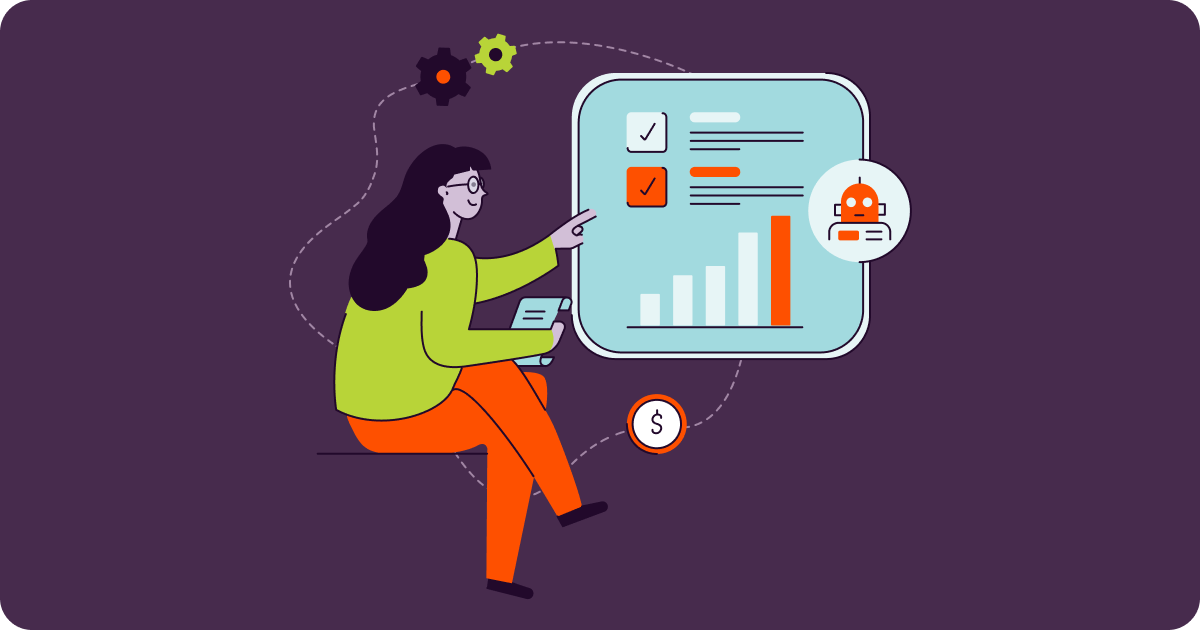Steve is sending a follow-up email to a prospect after a successful demo. In the email, he mentions a specific feature that the buyer showed particular interest in during their call. While crafting the email, he gets a notification from his company’s enablement tool that suggests including a new slide deck that other similar buyers found useful. With just a few clicks, Steve updates some of the information on the deck and sends it over to the buyer.
This is just one example of content personalization at scale. It’s also an example of how sales organizations can leverage AI-guided selling.
The growing need for AI in sales enablement
While artificial intelligence (AI) was already on the rise, digital and virtual selling have only accelerated the need for AI in sales enablement. The number of companies that have implemented AI-related technology has grown by 270% over the last four years and there’s no sign of slowing down.
But why is this the case? Because buyers are more informed and conduct most of their business online, it’s crucial for sellers to provide the most personalized experience and individualized attention when they finally interact with buyers. Go-to-market (GTM) teams also have more access to data and analytics on buyers to make strategic decisions. However, sellers are too busy to sift through this data and create custom content for buyers repeatedly. Instead, enablement teams need to find innovative ways to equip sellers for success — this is where AI solutions can come into play.
An addition, not a replacement
Even though the use of AI in sales enablement is on the rise, AI won’t replace the need for individual sellers or other teams that are important to enablement. Marketing still needs to create sales content that sellers will use throughout the deal cycle. And sales enablement teams still need to properly educate sellers on best practices and how to use that content correctly.
Instead, AI-guided sales tools are transforming how sales teams work. When sellers prepare for interactions with buyers, AI-guided sales tools can provide intelligent recommendations to sales reps based on the prospect, as well as what has previously worked in similar scenarios. This intelligent automation makes finding and sharing the most effective sales collateral even more efficient.
If you still aren’t convinced of the power of AI – consider this: AI leads to better business outcomes by reducing costs and increasing revenue. 44% of businesses that have incorporated AI tools into their processes reported reduced costs, and 63% have experienced an increase in revenue.
Never stop growing.
Improving the sales experience with AI
If better business outcomes aren’t enticing enough, high-performing sales teams are also 4.9% more likely to access and use AI tools than underperforming sales teams. However, empowering sales teams with AI does much more than automating tasks. The right AI-guided sales tools can also help in the following ways.
Maximize seller efficiency
AI-guided selling helps sales teams use their time more wisely. Due to the increased data involved in the sales process, sellers only spend 34% of their time selling. Using AI tools gives sales teams valuable insights to provide prospects with a highly individualized sales experience and increased potential to close deals. AI-guided sales tools also offer predictive forecasting, helping teams take proactive steps based on reliable data based on other similar deals or buyer behavior. And since AI systems can make intelligent recommendations and provide actionable insights on what content sellers should share, they no longer have to search through endless decks, whitepapers, and one-pagers trying to decide what to use.
Improve the buying experience
We can’t state this enough — buyers want individualized, personal attention. AI-guided selling tracks buyer behavior and understands how prospects interact with content. This information offers actionable insights and suggestions to sellers, helping sales teams share relevant, helpful content specific to each prospect. Customers value personalized interactions and empowering sales teams to deliver individualized engagement builds trust and loyalty between potential clients and businesses. Sales and marketing teams can then use this data to develop a more relevant content strategy for buyers when needed.
Integrate AI into your sales enablement strategy
AI is no longer optional for sales teams. Fierce competition in today’s digital marketplace makes AI-powered tools a necessary addition to sales enablement. If you’re ready to put your organization on the path to AI-guided selling, check out our whitepaper — Preparing for AI-Guided Selling: A Roadmap for Forward-Thinking Businesses. You can also see for yourself how Seismic uses Enablement Intelligence by requesting a demo.
